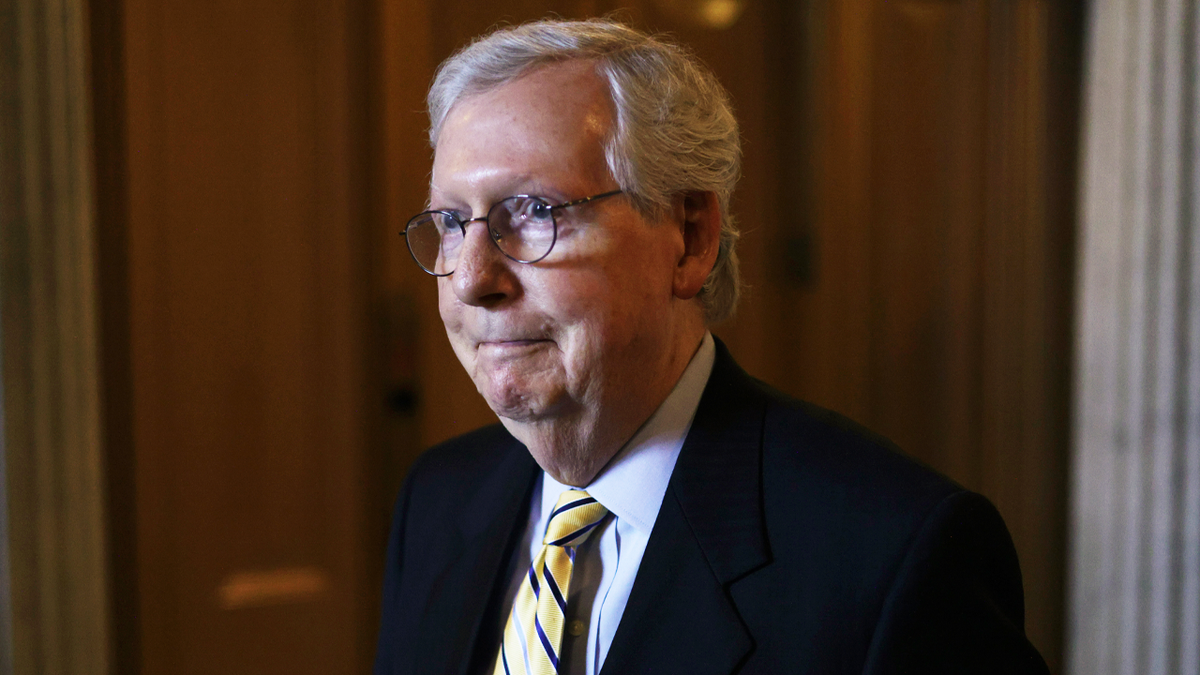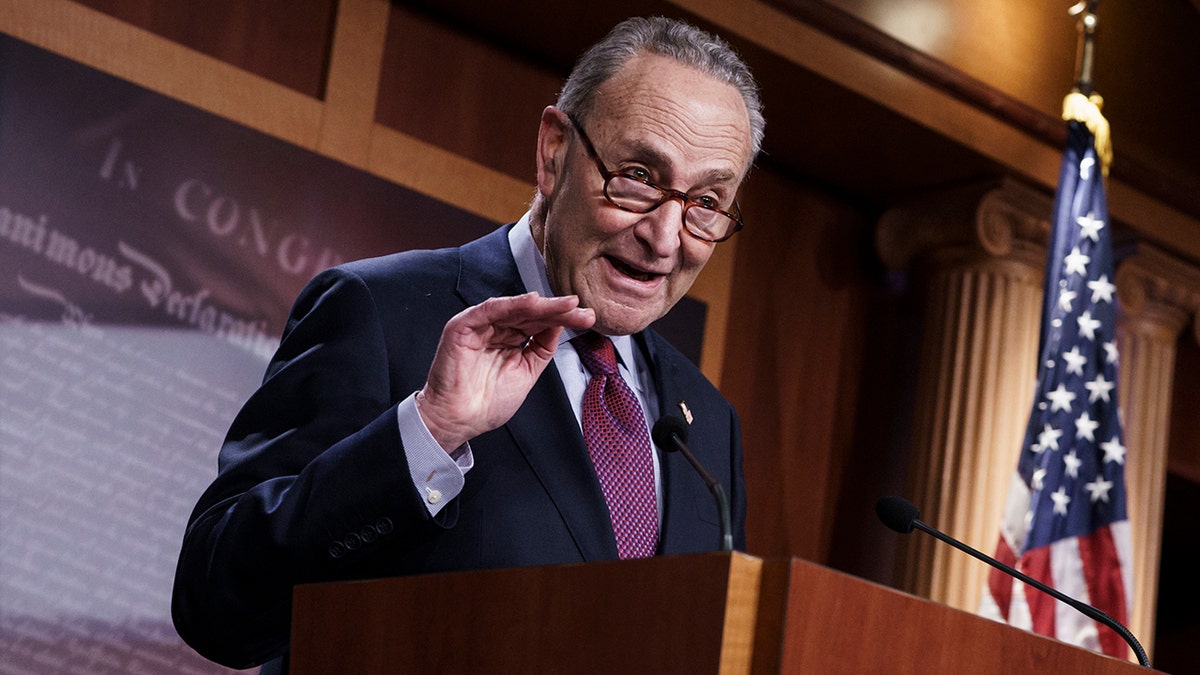Fox News Flash top headlines for December 9
Fox News Flash top headlines are here. Check out what's clicking on Foxnews.com.
GOP senators Thursday vented their frustration with a deal Minority Leader Mitch McConnell negotiated to enable Democrats to raise the debt ceiling – as most Republicans went to the Senate floor to vote against it in a procedural vote that passed 64-36 with unanimous Democrat support.
"I voted ‘no’ on cloture, I don't think that's the right direction to go," Sen. James Lankford, R-Okla., told Fox News. "Democrats had an opportunity to be able to do it by reconciliation. We've been clear on it since July. And we should have stuck with that simple thing."
"I just don't like the process and the precedent that it sets," Sen. Marco Rubio, R-Fla., said.
The deal between McConnell, R-Ky., and Majority Leader Chuck Schumer, D-N.Y., used a bill to avoid Medicare cuts as a vehicle for language allowing a one-time simple-majority vote to raise the debt ceiling in the Senate.

U.S. Senate Minority Leader Sen. Mitch McConnell, R-Ky., walks in a hallway after a vote at the Senate chamber at the U.S. Capitol June 22, 2021, in Washington, D.C. (Photo by Alex Wong/Getty Images) (Alex Wong/Getty Images)
THESE ARE THE REPUBLICAN SENATORS WHO SUPPORTED THE MCCONNELL-SCHUMER DEBT LIMIT DEAL
The procedural vote on "cloture" Thursday removed the 60-vote filibuster hurdle to end debate on the bill, meaning that the Senate will be able to advance it with 50 votes for President Biden to sign. Then, Congress is on a glide path to pass the actual debt ceiling bill with only Democrat votes. That would likely happen next week.
McConnell defended the deal as a different way of forcing Democrats to raise the debt limit without GOP votes, as Republicans have been demanding for months. But his fellow Republicans lodged a variety of objections to the plan – ranging from complaints that the move was a retreat from Republicans' red line to wonkier concerns about precedent.
Sen. Mike Braun, R-Ind., avoided directly criticizing McConnell even though he voted "no" on cloture for the debt limit deal. Braun said that in the end, "no Republican will support raising the debt ceiling at certain figures."
"I voted against raising the debt ceiling since I've been here, and I'm going to continue to do that until we reform it to where we're not adding to the debt each year," he said when asked to explain his vote.

Senate Majority Leader Chuck Schumer, D-N.Y., praises his Democratic Caucus at a news conference. (AP Photo/J. Scott Applewhite)
Sen. Kevin Cramer, R-N.D., also tried to strike a conciliatory tone toward the senators who voted differently than he. Cramer's vote against cloture was not made despite thinking GOP caved so soon, he voted that way because of it.
"I don't begrudge any of my colleagues that disagree with me. As you know, I struggled with it," Cramer said. "I leaned ‘yes,’ when I first heard about it. But as I look at the calendar and the clock, I think we have more time to fight harder."
"Avoiding Medicare cuts and other pay-for cuts is important," he added. "I would gladly vote for all that stuff as standalone. But just given where we are, given the fact that we have some time, I think we should just keep fighting for something more responsible."
Even some of the 14 Republican senators who voted for cloture on the procedural bill said they were unhappy with the result of McConnell's negotiations.
"I wasn't happy with the deal that was negotiated," Sen. Mitt Romney, R-Utah, told Fox News. "But that's the deal that ended up being on the table and I want to make sure we raise the debt limit and we don't cut Medicare."
Despite his desire for Republicans to stick to their red line, Lankford said that potentially the most concerning part of the deal is the precedent it sets.
"This created a system where the House of Representatives writes and passes a bill telling the Senate here's how you'll do your procedure and then send it over," Lankford said. "Requires 60 senators to agree to that procedural change. But in a 900-page defense authorization bill when it comes over, they could literally try to slip in something that does a procedural change in the Senate… and people have got to be able to find it."
"It is something that has been created. It's been used once that I'm confident will be used again in the future. And that does concern me," he added.
McConnell did not respond to questions from Fox News and other outlets after the procedural vote Thursday.
If the debt ceiling is not raised before the government runs out of borrowing authority, the result is a default on the federal debt, which has never happened before. Experts predict the result would be economic calamity, including major job losses and massively increased interest rates.
CLICK HERE TO GET THE FOX NEWS APP
But the debt limit nevertheless is often used as a political football by members of Congress who want to force the government to implement spending reforms – something Cramer said he wished was part of the deal.
"I think all of my colleagues view it through that lens that this is a hard vote where both votes – either vote is wrong and either vote is right," Cramer told Fox News. "If we had something that 40 or 45 senators could vote for, that would be great. But we're confronted with a crap sandwich, you know, and I'd rather have a hamburger."






